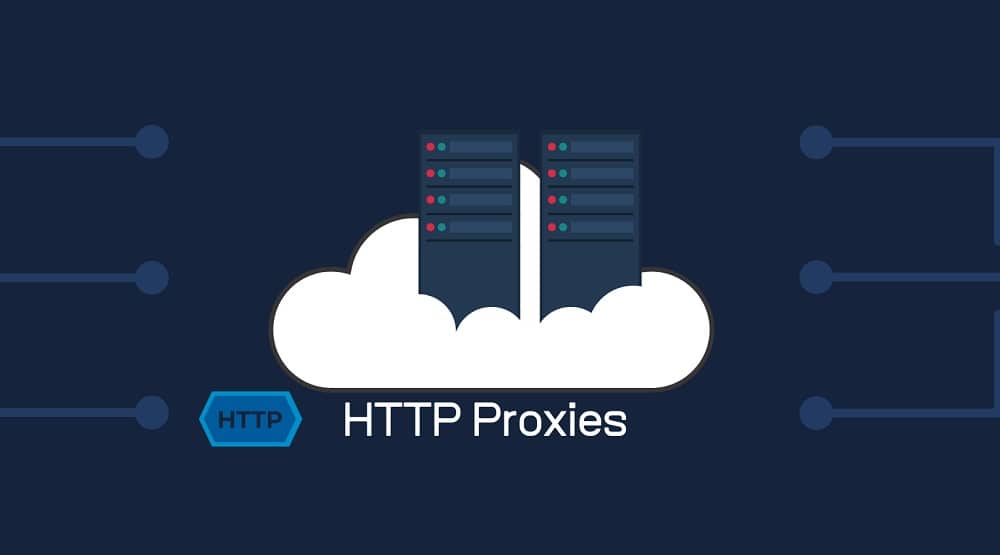HTTP Proxy: Is it secure?
Hypertext Transfer Protocol, or HTTP, was designed in the 1990s and is the foundation of any data exchange on the Internet. Over the years, this protocol has evolved and extended, making it an inseparable part of the internet today. This article will explain the meaning of HTTP proxy, how it works, and what benefits different configurations can bring.
What is an HTTP Proxy?
A gateway created by configuring a computer or browser is known as an HTTP proxy. The IP address of the proxy is user-defined; if the user does not specify one, the operating system assigns a number. It can access HTTPS websites. This is due to the fact that they use a two-way communication mechanism to get access to the Secure Sockets Layer (SSL).
How does it work?
An unfortunate reality of the current day and age is that cybercriminals constantly threaten companies online. This is where an HTTP proxy server becomes particularly useful – all thanks to its ability to filter out any suspicious activity over your connection. Regularly examining web traffic to identify any malware, an HTTP proxy server quickly blocks potential attacks from external networks.
It also examines the source of the web traffic before sending it to an internal web client. Doing so ensures that potentially harmful content is far less likely to enter your network, and buffer overflow attacks can be avoided.
You can customize the HTTP proxy server’s ruleset to suit your business requirements. Depending on the configuration, companies can set up the ruleset for different purposes, which will soon be discussed.

Benefits and Limitations
HTTP proxy servers offer many uses, including a wide range of security benefits. They enable users to hide their IP addresses to anonymize browsing activity and can act as a tunnel or network link that provides devices with restricted access to networks.
They are helpful for internet users who want to hide their identity online, access prohibited websites, or enforce access policies on specific websites. They help save vast amounts of bandwidth because they cache files and webpages, which can also reduce the number of ads that users receive.
However, data caching can lead to information misuse, particularly if the cache is hacked, as it stores users’ data and login credentials. Other limitations include:
- Potential compatibility and configuration issues with local networks
- Cost of setting up and maintaining the proxy server
Uses of HTTP proxies
Anonymize connections
As mentioned earlier, an HTTP proxy hides the real IP address. It works somewhat differently from other proxies, particularly because the user gets to choose the IP address the proxy should use. The anonymity HTTP proxies provide means that a website cannot obtain the client’s real IP address.
Filter content
HTTP-client proxies and HTTP-server proxies filter the content reaching them. They do not allow unauthorized files to be stored on the server or user’s computer. Thus, they prevent possible malware, spyware, and ransomware attacks.
Promote security
You can configure your HTTP proxy to examine the HTTP and HTTPS headers to determine the content’s source. This process ensures that websites that are known for being sources of suspicious content are disallowed, thereby protecting your computer. In this regard, HTTP proxies act as a firewall. Notably, a header is a section within a data packet that contains information about the content being sent (its characteristics), the source website, and the length of the file.
Moreover, HTTP proxies promote security by analyzing the protocol for any anomalies. It relies on a set of rules, i.e., requests for comments (RFC) specifications, that dictate what normal is. For instance, a web server is supposed to accept requests and not send them. As such, when it starts initiating communication sessions with a host, that constitutes an anomaly. Similarly, an extra-long header is an anomaly, meaning an HTTP proxy would block any request or content with an extremely long header.

Why do businesses often opt for HTTP Proxies?
Businesses and multinational corporations use HTTP proxies for a few reasons. The first reason is, of course, security as HTTP proxies help identify and eliminate all content that could lead to data breaches and other complications. However, they have proven to be a powerful tool for finding information and spying on their competition.
Since HTTP proxies allow quick and easy web scraping, businesses often use them to see what their competitors are doing, which types of files they include in their website creation process, as well as how their codes are written and why. All this information can help businesses improve their website and make the user experience both safer and better at the same time.
But that’s not all. Proxies are also one of the best ways to anonymize web traffic, which can block hackers from stealing ad traffic, website traffic, etc. If a website gets a large influx of visitors in a short period, its servers can crash and become unresponsive.
However, proxies can also help distribute the load and keep the original content up and running in these situations. Lastly, HTTP proxies can also help increase speeds and save bandwidth by compressing traffic and filtering out the pages that are not safe.
Conclusion
So, that concludes our complete guide on HTTP proxy servers and how they work. Utilizing an HTTP proxy server has the potential to benefit your business in many ways: protect your network from external attacks, shield your IP address, restrict unwanted content, and help you with web scraping projects.